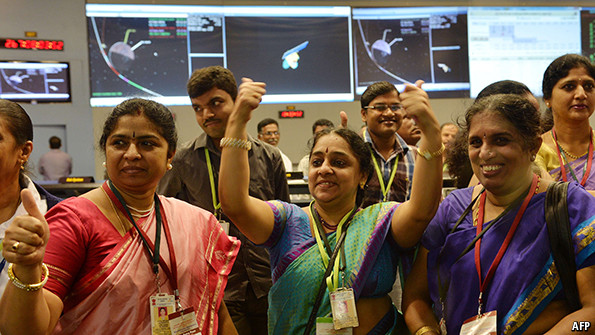Women rocket scientists. How awesome, right?
I don't know their back stories. But, chances are good that if those scientists are also mothers, then child care was never a big worry for them--because, grandparents, almost always grandmothers, took care of the young ones while the parents were off at work. Nuclear families in which the parents, especially mothers, exclusively take care of their kids is more the exception than the rule in the old country.
Of course, that is not the case here in the United States.
And now the coronavirus has completely upended every aspect of our lives, including schooling and day care centers, which then requires parents to take care of their children 24x7. In most cases, this huge task falls on mothers, which is a huge challenge when they are also working from home. It is even more of a challenge if they suddenly became unemployed.
According to research from Syracuse University released last month, more than 80% of adults in the country not working in order to care for children who would be in school or daycare if not for COVID-19 are women. A recent paper published in the academic journal Gender, Work & Organization found that mothers of young children reduced their working hours four to five times more than fathers.It.Is.A.Nightmare.
Though the following metaphor that Betsey Stevenson uses is not the best one for the context, it conveys the point:
Although young men today are much more likely to profess their belief in gender equality than those of previous generations, they are not significantly more likely to divide most household tasks equitably, from child care to grocery shopping. And COVID-19 does not seem to be changing this dynamic, Stevenson says.If that is the situation now, what might be the long-term effects?
“If the guy is driving toward the cliff of not feeding the children, and the woman is driving toward the cliff of not feeding the children, she pulls off first and she feeds the children,” Stevenson said. “And the problem is that if he knows that she’s going to pull off first, then he wins the game of chicken.”
Child care is one of those issues where we still really think it’s a personal problem: ‘You made the choice to have those little rugrats. You deal with them.’ Compare that with elder care. We recognized it was a social issue. We built a series of nursing homes and institutional care, and we have societal grants to cover some of that through Medicaid. But with child care, we’ve said this isn’t a social issue. And I think the pandemic has revealed that it is a social issue.
Child care is not a personal issue, it’s not a women’s issue; it’s actually an economic issue. It’s an economic issue because we need to invest in children.
Again, compare with India, where not only child care is a part of an extended family issue, elder care too is part of an extended family issue.
Meanwhile, here in the US, we are leaving parents and their children behind even as we spend gazillions on supporting
Come September, I don’t think that the pandemic is enough behind us that every job would be back anyhow. Can we get every job back without child care? Absolutely not. The question is, how much is a lack of child care holding us back, versus how much are people still staying at home because they don’t want to get Covid?
Even if child care is not holding us back in September or October, we are letting the whole child care system erode in such a way that it’s not going to be there for us when we are fully ready to go back.
How so?
Where I really see the child care crisis holding us back is once we are ready to have all the jobs come back and we’re really ready to recover, even though we’ll have opened the schools, opened the child care centers, the workers aren’t going to be there, the slots aren’t going to be there. At the state level, we saw this in the 2008 recession
Very depressing!
Does Professor Betsey Stevenson have a solution?
The solution has got to be government spending on child care. It’s going to have to be government encouraging and rewarding businesses that provide employees with the flexibility they need in order to balance work and child care. The policymakers debating legislation right now need to realize that caregiving is an essential part of our economy. And it’s an investment that when they make that, they are going to see benefits in terms of economic growth.
The same folks who are happy to cut corporate taxes because they think that’s going to unleash a wave of growth, I want them to realize that if they want to unleash a wave of growth, they need to invest in the next generation so that the current generation can do their work and the next generation is prepared to do it even better.
I am on board with this.
I was/am never a fan of government-subsidies for adults to have children. But, I have also always believed that subsidies for human issues are far more important than subsidies for corporations to screw our lives. However, as long as we have a party that is committed to protecting the life of abstract "persons" that corporations are, and with their party faithful committed to defending the "life" of a fetus in a petri dish while not caring about investing in life that is already here alive and suffering, we are doomed.
So ...
So ...

No comments:
Post a Comment